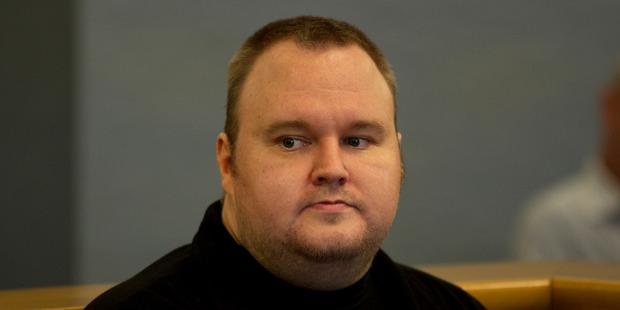Embattled internet entrepreneur Kim Dotcom’s latest attempt to block his extradition to the United States has failed.
The 51-year-old German-born businessman has been living in New Zealand since 2010 and challenged the legality of the Justice Minister’s decision to surrender him to the US through a judicial review heard earlier this year.
He also challenged the Police Commissioner’s decision not to lay charges against him in New Zealand, arguing it was politically motivated.
In a decision out today, the High Court declined Dotcom’s application for review and found neither of these arguments stood up.
The Ministry of Justice has been approached for details on what happens next, but Dotcom’s lawyer Ron Mansfield told RNZ there is more to come.
“We have much fight left in us as we seek to secure a fair outcome,” Mansfield said.
Justice Minister Paul Goldsmith said he was pleased his decision had been upheld.
Dotcom normally resides in Glenorchy, near Queenstown, and had been living in East Taieri, near Dunedin, recently for treatment after suffering a stroke last year.
The judicial review
In 2012, the US requested Dotcom be extradited from New Zealand to face charges of copyright infringement, money laundering and wire fraud.
Dotcom appealed this decision all the way to the Supreme Court, which ruled the Megaupload founder was eligible for surrender to the US in November 2020.
Given the extradition request was outstanding, the Justice Minister was required to make a decision on the surrender and decided that Dotcom should be returned to the US in August 2024.
In a judicial review heard in May this year, Dotcom argued that Goldsmith “erred in failing to find that the offences for which his extradition is sought are of a political character”.
The internet entrepreneur told the court the United States’ prosecution was motivated by “improper purposes”, including to appease copyright owners and deprive him of safe harbour protections under New Zealand’s Copyright Act 1994.
“Mr Dotcom further asserts that his surrender is sought in order to make an example of him for political gain, rather than for legitimate criminal prosecution,” the judgement said.
Justice Grice found there was “no evidence to support Mr Dotcom’s allegation that the United States prosecution was politically motivated or carried out for any other improper purpose”.
She also found Dotcom’s contention that he would face grossly disproportionate treatment, making his surrender unjust and oppressive, was not made out.
Dotcom also challenged the legality of the Police Commissioner’s decision not to lay charges domestically, arguing it left him open to extradition and was made on the basis of political and other irrelevant considerations.
Justice Grice said the decision to charge two others in the Megaupload case – Mathias Ortmann and Bram van der Kolk – and not Dotcom, “was a proper exercise of the police’s discretion.”
“There were differences in circumstances between Messrs Ortmann and van der Kolk and Mr Dotcom which entitled the police to reach different conclusions with respect to the alleged co-offenders.
“There is no evidentiary basis for Mr Dotcom’s allegations of bias or unreasonableness,” she said in her judgement.
– additional reporting by Allied Media

